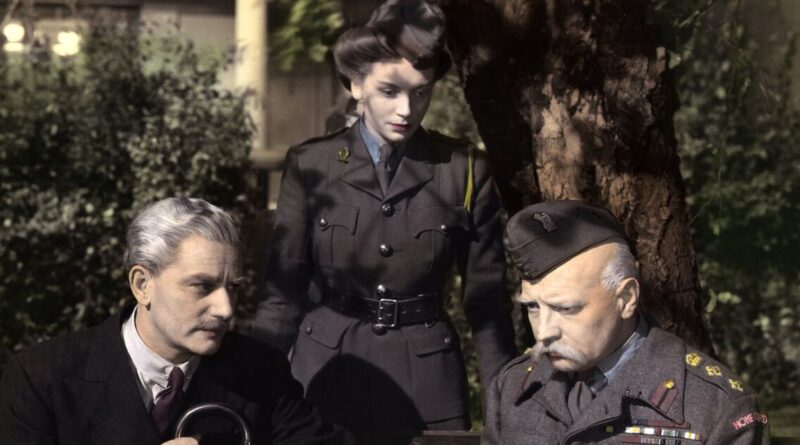‘Marvellous’ British WW2 film that Churchill tried to ban is on ITVX | Films | Entertainment
A remarkable piece of British cinema history has just landed on ITVX.
Released in 1943, The Life and Death of Colonel Blimp – Michael Powell and Emeric Pressburger’s celebrated satire of Britain’s military elite – tells the story of Major-General Clive Wynne-Candy, a decorated but increasingly outdated British officer.
Played by Roger Livesey, Candy’s journey charts the arc of British history from the Boer War, through World War One, and into the heart of World War Two.
Across the decades, Candy remains loyal to a set of old-fashioned ideals: clean fighting, honour, and trust. Yet as the world hardens around him, Candy’s worldview appears increasingly out of step with the brutal realities of the 20th century.
The history in the film is interesting, but the context around its production and release tells a story of its own: When Powell and Pressburger conceived the film in early 1942, Britain was facing crisis after crisis. Defeats in Southeast Asia and North Africa had left the nation’s morale battered.
Inspired by David Low’s famous “Colonel Blimp” cartoons, which satirised the British establishment as pompous and outdated, Powell and Pressburger sought to explore how Britain’s military traditions – that were once considered a strength – might now be a liability.
As Powell later explained, he wanted to show that “Blimps are made, not born” exposing how the values that once defined British strength had, over time, contributed to its vulnerabilities.
However, not everyone appreciated the filmmakers’ ambitions. When news of the project reached the British government, alarm bells rang: The War Office and Ministry of Information refused official support, Secretary of State for War P.J. Grigg openly criticised the film’s critical stance, and Prime Minister Winston Churchill went further, demanding that the production be stopped.
In a memo to his Minister of Information, Brendan Bracken, Churchill asked: “Pray propose to me the measures necessary to stop this foolish production before it gets any further.” But Bracken, wary of appearing authoritarian during a war fought in the name of democracy, resisted.
In the end, no official action was taken – though Powell and Pressburger would never forget how close they came to being censored.
Colonel Blimp presents Clive Wynne-Candy as a fundamentally sympathetic figure, and Livesey’s portrayal captures both Candy’s nobility and his tragic flaws – a kind, brave man whose refusal to adapt blinds him to the grim realities of modern warfare.
One online reviewer recently wrote: “He is a good man who hasn’t moved with the times, who sees life and war in a certain way that’s out of touch with reality.”
At the heart of the film is Candy’s enduring friendship with a German officer, Theo Kretschmar-Schuldorff – played by Anton Walbrook, who, himself, is a refugee from Hitler’s Germany -, a former Prussian soldier who becomes disillusioned with his homeland’s descent into fascism.
About that subplot, another viewer wrote: “A brilliant film and one of the best character studies in cinematic history. Roger Livesey and Anton Walbrook were incredible. Too bad the film and the stars weren’t considered for Oscars.”
At the time of its release in June 1943, Colonel Blimp defied its critics to become the second-highest-grossing British film of the year. Even Churchill, magnanimous in victory, reportedly attended a screening and appeared to enjoy the film, according to The Daily Telegraph in 1943.
“The greatest British film of all time”, one fan commented. “As I get older the film comes to mean more and more to me on a personal level. Poignant, elegiac and consoling. It is also very funny.”
The Life and Death of Colonel Blimp (1943) is now available to stream on ITVX.





